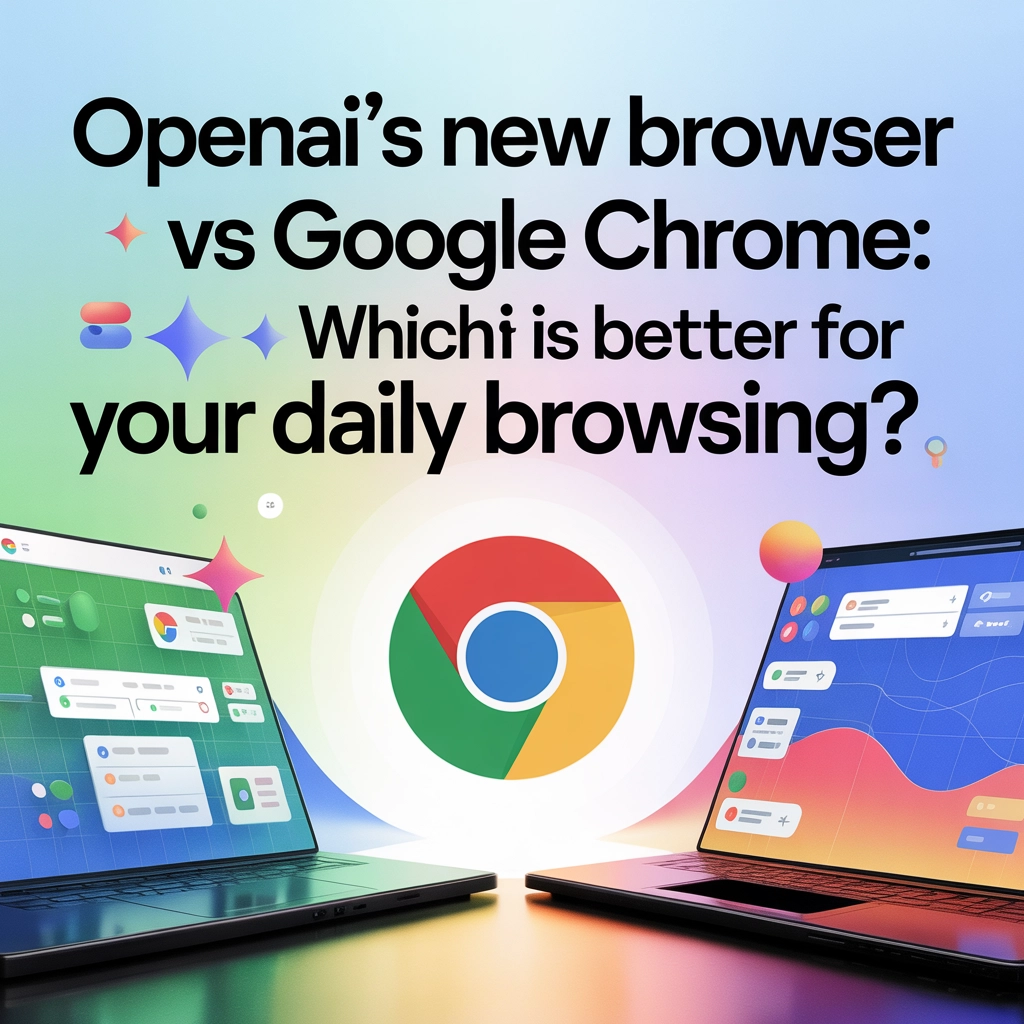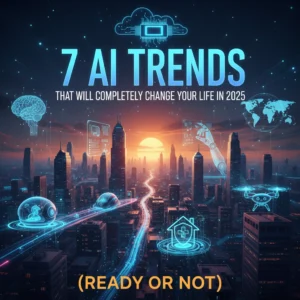What if I told you that soon you might never have to manually book a flight, compare prices, or even type in a search bar again? OpenAI's rumored browser isn't just another Chrome competitor, it's potentially the biggest shift in how we use the internet since, well, the invention of browsers themselves.
But here's the thing: Chrome isn't going down without a fight. With 66% market share and billions of loyal users, Google's browser has some serious advantages that might make you think twice about jumping ship.
Let's break down what we actually know about this brewing browser war and figure out which one deserves a spot on your desktop.
What Makes OpenAI's Browser Different?
OpenAI's browser isn't trying to be Chrome with a fresh coat of paint. It's built around something called "Operator", AI agents that can actually do stuff for you instead of just answering questions.
Picture this: instead of opening five different tabs to compare laptop prices, then manually filling out forms to check shipping costs, you'd just tell your browser "find me the best laptop under $800 with good reviews." The AI would handle everything, comparing specs, reading reviews, even adding items to your cart if you want.

The browser runs on Chromium (same engine as Chrome), so it'll work with your favorite websites. But the experience is completely different. Think ChatGPT, but instead of just chatting, it's actually browsing the web for you.
Here's what makes it interesting:
- Chat-first interface: You talk to your browser like you'd talk to a friend
- Task automation: The AI can fill forms, book reservations, and compare products
- Content summarization: Long articles get condensed into the key points you need
- Contextual memory: It remembers what you were looking for across different sessions
But there's a catch, this browser doesn't exist yet. OpenAI hasn't officially announced it, though reports suggest it's coming soon. So we're basically comparing a real product (Chrome) with what might be the future of browsing.
Chrome's Still Got Game
Before we get too excited about AI browsers, let's remember why Chrome dominates the internet in the first place. It's not just because Google forced it on everyone (though that helped).
Chrome works. Period.
It's fast, stable, and plays nice with pretty much every website on the planet. You've got thousands of extensions, seamless Google account integration, and a interface that doesn't require a computer science degree to figure out.

Plus, Chrome's not sitting still. Google's been quietly adding AI features like automatic translation, smart suggestions, and improved security. It's not as flashy as having an AI agent book your dinner reservations, but it gets the job done without breaking your workflow.
The real advantage? You know exactly what Chrome's doing. When you click a link, you go to that website. When you search, you get search results. There's no AI middleman making decisions about what information you should or shouldn't see.
The Real-World Test
Let me tell you about my friend Sarah, who's probably a lot like you. She's not a tech person, but she spends hours online every day for work, researching vendors, comparing products, booking travel for her team.
Last month, she spent three hours trying to find catering for a company event. She had to visit twelve different websites, fill out quote forms, compare menus, and email back and forth with vendors. By the end, she was exhausted and wasn't even sure she got the best deal.
Now imagine if she could've just told her browser: "Find catering for 50 people in downtown Austin, vegetarian options required, budget $15 per person, get quotes from top-rated vendors."

That's the promise of AI browsers. But here's what Sarah told me: "I like knowing where my information is coming from. If an AI just gives me three catering options, how do I know it didn't miss the perfect local place that doesn't show up in search results?"
She's got a point. Chrome might make you do the work, but at least you control the process.
Which One Should You Choose?
Here's the honest truth: we can't really answer this question yet because OpenAI's browser isn't available to test. But based on what we know, here's how to think about it:
Go with OpenAI's browser when it launches if:
- You do a lot of repetitive online tasks (research, booking, shopping)
- You're comfortable with AI making decisions for you
- You want to be on the cutting edge of technology
- You trust OpenAI to handle your browsing data responsibly
Stick with Chrome if:
- You need reliability for work or important tasks
- You use lots of Chrome extensions
- You prefer controlling every step of your browsing
- You're deeply integrated into Google's ecosystem
- You want something that works right now, not eventually
The middle ground approach:
- Keep Chrome as your main browser for important stuff
- Try OpenAI's browser for experimental tasks when it launches
- See which one actually makes your life easier after a few weeks of real use

Remember, this isn't necessarily an either/or choice. Most people use multiple browsers anyway: maybe Chrome for work, Safari for personal stuff, or Firefox for privacy-focused browsing.
The bigger question isn't really Chrome vs. OpenAI's browser. It's whether we want AI agents handling more of our online lives, or if we prefer staying in control of our own browsing experience.
What do you think: are you ready to let an AI browse the web for you, or does the idea of giving up that control make you a little nervous?







